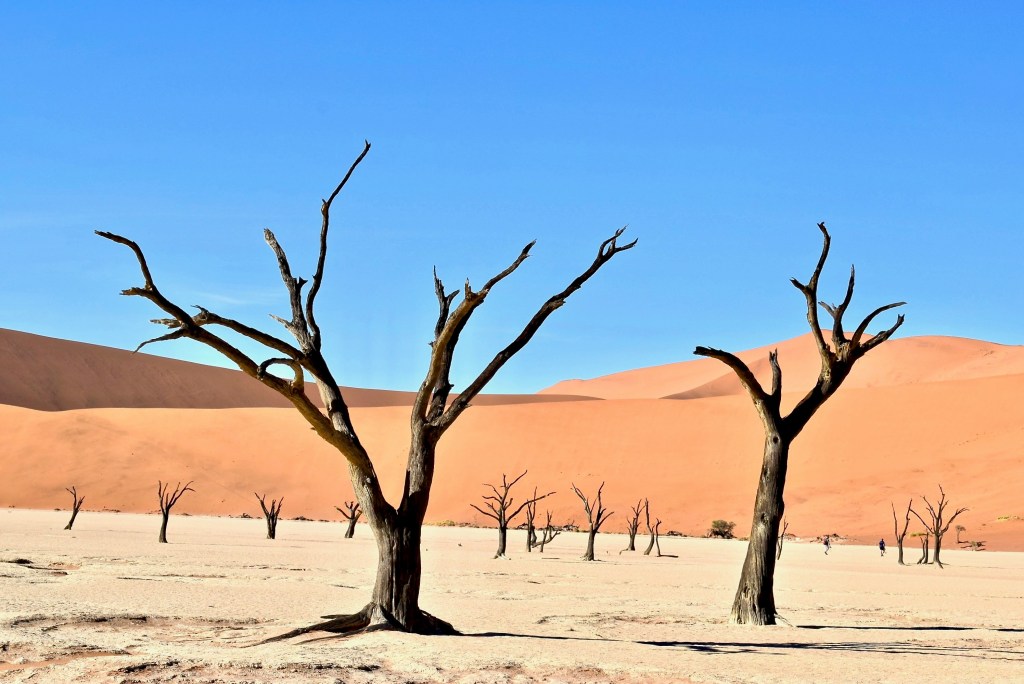There you are, with a steaming mug of coffee next to you, and you fire up your laptop to see sitting, unread in your inbox, three requests for your services.
One you can do straight away, the second they want in seven weeks and the final request is for a meeting (next week) about a juicy creative project that doesn’t need to be delivered until next year.
Satisfied, you fire off a “yes” to all three requests, slurp down that coffee, and go for a walk. Life is good. Work is there. Work is coming. People want your talents and skills, and all’s well.
Then you wake from the dream. Well, that’s not entirely true. It is possible to wake up to three new requests for work when you’re a freelancer, but the chances they all have nicely spaced out deadlines is less likely.
Life, as we all know, goes up and down, and getting gigs does too. It’s part of the risk of going on the ‘lance, as it’s known, or swimming with the agile workforce. You just don’t know. There’s safety in PAYE and accruing holiday pay, but then there’s the nine to five.
For those tempted to dive into the wonders and sometimes nail-biting times of the freelance world, then a good first step is talking to others already doing it.
Here are three people working in different fields: Maori illustrator Pounamu Wharekawa (Ngai te Rangi, they/them/ia), screenwriter/playwright Kathryn Burnett and actor Mark Mitchinson, who have all learned valuable knowledge along this sometimes rocky path.
Can you have flexibility and freedom without the teeth gnashing?
No! They come as a package. But that’s OK. Burnett has been writing for over 25 years and freelancing for most of that time. In addition to an award-winning career writing for screen and stage, she’s a coach, teacher and screenplay assessor.
She says if you don’t like uncertainty or can’t manage it – don’t be a freelancer. ‘You have to have faith in yourself and back yourself and know you’re going to be OK. If you get bent out of shape when something is uncertain maybe it’s not for you – because it will be uncertain all the time.
‘Things happen that you have no control over. But if you can ride the roller coaster, then it’s great. I love working for myself.’ Wharekawa has been a freelance illustrator and muralist since 2020, beginning while still studying. They say the uncertainty is not always fun.
‘It can be pretty hard. I’m lucky as I have a good niche that’s in demand. People want queer art, and they want Māori art and so I have managed to forge my way in those spaces.’
Two-time NZTV award-winner Mitchinson has been on the ‘lance for 16 years. He agrees with Burnett on the importance of backing yourself. ‘Self-belief is paramount if you’re a freelancer; you have to believe in yourself.’
Make rejection your friend
Getting curious about the process of how people say “yes” or “no” to jobs/pitches/auditions/RFPs (request for proposals) helps take the sting out of rejection. When Mitchinson graduated from acting school in London, he was told that his career would happen later in life – so he went and lived a big life before diving in.
Once he decided to act full-time, at 36, he made sure he understood the selection process. He talked to casting directors and producers (fortunately his partner is one).
‘When you’re a freelancer, you don’t know any of the decisions people are making about how you get the job. You need to understand the process, how the choices are made, and why – it may be a certain look or chemistry with other actors. There are so many variables to get the role. And you must understand the decision-making process is out of your control.’
If you’re pitching for corporate work, find out how people decide who to give a job to. Ask someone who works in a role how they do it. Most corporates have stringent brand guidelines, so they will be looking for freelancers who can match their tone and vibe – whether you’re a voiceover artist, graphic designer, media release writer or MC.
Rejection usually works out in the end. A year or two later you’re happy you didn’t do that gig, or you learned something helpful. As Mitchinson says, repeat the mantra ‘it’s not me, it’s them’ until you believe it.
There will be dry spells

Burnett went through one of her toughest dry spells since she’s been on the ‘lance in 2023. ‘A lot of people were scratching around for work in my area. It was the worst year for me.’ She says it’s been important to have lots of strings to her bow – like her teaching and coaching.
Mitchinson notes you have to get your head around the fact it’s not personal. ‘It’s not your fault. You are not the cause of the dry spell (unless you’re an a***hole). It’s the natural way of things, especially in the film and television industry.
‘There is a part for every actor and, if you believe that, it keeps you in it.’
Wharekawa says work really does come in waves. ‘I will have nothing lined up for a month, scratching around doing my own tiny little things to hustle and grind, and then suddenly – out of the blue – three or four people will hit me up at the same time.
‘When it rains it pours. And when that happens, there can be a reluctance to turn things down – what if there’s another month where you get nothing? That can be difficult to navigate.’
There is no peak
Don’t spend your time searching for the top of the mountain. It’s more like a rambling river. Freelancing, like any career, will have times when you feel like everything’s going your way and other times when it’s not. Success is elusive – it’s better to celebrate the highs and go easy on yourself during the lows.
‘You might have two or three years where things go well and you think, “I’m there, I’m a success!”,’ explains Burnett, ‘and then suddenly – for no reason – you hit a dry spell. It’s not you and your talent. It’s just that things shift all the time.
‘Enjoy the good and you know it’s going to change, enjoy the bad and you know it’s going to change. Don’t go, “I’m the king of the hill or I’m useless”,’ says Mitchinson.
It’s OK to be compensated for other people’s bad management
In the creative world or gig economy, you may feel like you’re only as good as your last project or performance. This puts pressure on you to say “yes” to everything in case the opportunity doesn’t come along again, in case your current “no” turns into more “nos” in your future (unless you have an agent and that’s their job to manage).
Wharekawa has introduced a rush fee to deal with this. If a client wants something within an unreasonably short timeline and wants it to be good, then they have to pay more for it. ‘I can’t take on other work or do other things, so I need to be compensated for that. I make it very clear when I send them the check-ins that they must prioritise getting back to me. If I’ve got a month to do something I’ve got the time to send the email, wait for them to come back in a couple of days and say, “This colour looks good” or whatever, take on feedback, and send it back.
‘But if this has to be done in one week, I don’t have that time.’

If you’re constantly taking jobs is there any room for your own creative projects?
Yes. But plan it out. Burnett ring fences her own creative projects – one for you and one for someone else. She says that if you’re good at what you do ‘then the paid jobs for others take over as you keep getting offered more work’.
‘There’s always the pull between commerce and art. Some people have a full-time job and squeeze art practice around the edges.’
Be part of rent-a-crowd
One of the best ways to rustle up work is some good old face-to-face time. If you get invited to things, then go – as everyone wants a full crowd at an event and you never know where a conversation may lead.
For Wharekawa, getting out to events has been important. ‘The way I started freelancing, and finding it easier to conceivably see a career from it, was when I started making friends in all these different sectors that I could work with.
‘Go out and make new friends. It doesn’t have to be boring. It can be going to exhibitions, drinking wine. And maintain those connections too – don’t just rely on digital realms.’
Put your hand up when you’re looking for work
Burnett highlights it’s a good idea to let people know you’re available. ‘I wish I had known this when I was younger. When the phone was not ringing and no one’s offering, I used to think I’d wait.
‘Don’t wait. Let people know – you don’t have to blare it all over Facebook, but email people. You don’t know what people are thinking about or need. I have heard from others who say, “Oh, I just assumed you would be too busy to take anything new on.”
‘New Zealanders tend to be reticent about coming forward and asking. I have had to break that habit of being shy and self-effacing.’ Burnett once picked up a $30,000 gig out of sending an email to a handful of people.
Wharekawa has also found this helpful and says that when you put the call out, people know you have time and space for them. ‘In between big jobs, working for corporate and foundation clients, I usually post stuff on socials, saying, “hey, if you see any mahi around…? or “does anyone need anything done” and people will come through quite quickly with stuff.
Read: Tips on managing a precarious freelance career
‘When people see you working, they don’t know how in demand you are, so can be reluctant to come forward.’
But not if you’re an actor or in the film industry. Mitchinson says, in this case, do not put your hand up publicly; only your agent should know. ‘Otherwise, it looks like you are desperate and sad. Lots of actors have side hustles to cope with this.’
Don’t be a jealous grinch!
Comparison is the enemy of creativity so, if you can, try not to envy anyone else getting gigs. People can look busier on Instagram than they really are.
Burnett also likes to pay it forward. ‘If someone offers me a gig and I can’t do it – and I know this is contentious – but I like to recommend someone else who is a freelancer. You run the risk of losing your client, but you’re also serving your client. You’re solving this problem for them. And you’re building a network of people who may contact you if they have too much work on. Networks help.’
Mitchinson says your world changes when you’re a bit more generous of spirit. ‘Don’t compare yourself to anyone else. Nobody is like me and I’m not like anyone else. When you get bitter and twisted, you don’t get work. People think you’re difficult.’
He closes by recommending that you never chase fame, quoting the great Konstantin Stanislavski, ‘Love the art in yourself, not yourself in the art.’
Quickfire advice to their younger selves:
Mark Mitchinson – buy more shares!
Pounamu Wharekawa – go to more things and events!
Kathryn Burnett – let people know when you are available!
This article was written by Angela Barnett, and was first published by The Big Idea, New Zealand. It has been slightly amended in accordance with ArtsHub‘s house style.





